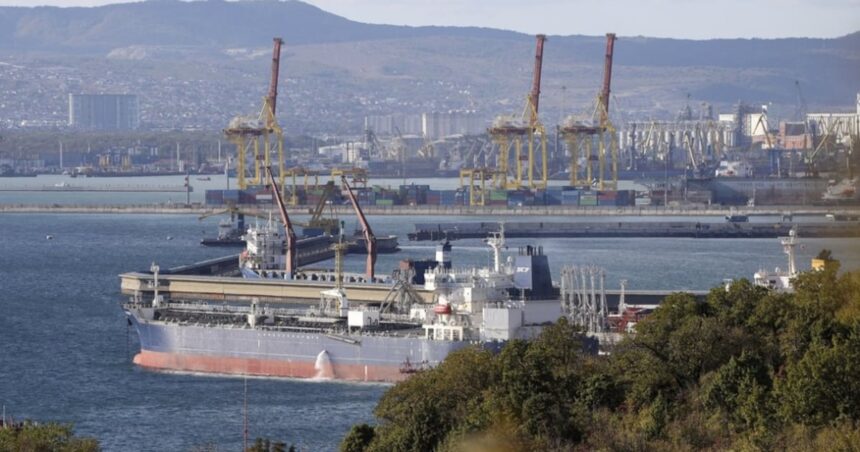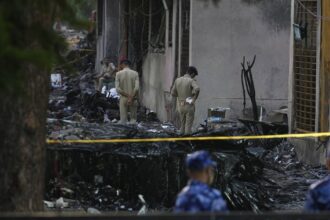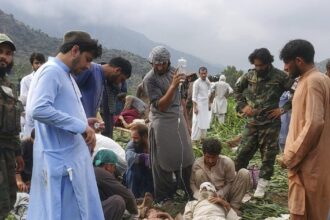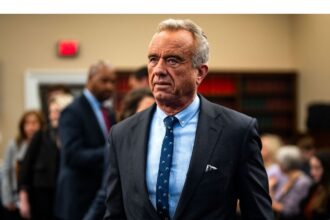In a decisive move that signals growing Western resolve, the European Union has unanimously approved its 14th package of sanctions against Russia, targeting crucial revenue streams that help finance Moscow’s war machine in Ukraine. The measures, finalized Monday after weeks of diplomatic negotiations, represent one of the most comprehensive attempts yet to curtail Russia’s ability to circumvent existing restrictions.
“These sanctions will further drain Putin’s war chest,” declared Estonian Prime Minister Kaja Kallas during the announcement in Brussels. “We’re targeting Russia’s shadow fleet, addressing sanctions circumvention through Central Asian countries, and cutting off additional revenue sources the Kremlin desperately needs.”
The new package directly confronts Russia’s growing “shadow fleet” of tankers—vessels operating outside international regulations to transport oil above the G7‘s $60-per-barrel price cap. European officials estimate this fleet has expanded to over 600 vessels since Western sanctions began, allowing Russia to maintain critical energy exports despite previous restrictions.
Financial analysts at the Brussels-based Economic Security Council report that Russia earned approximately €15.6 billion from oil exports in the first quarter of 2024 alone, highlighting the urgency behind these new measures.
“What we’re witnessing is an economic game of cat and mouse,” explains Martin Korhonen, senior economist at the Royal Institute of International Affairs. “Russia adapts to each round of sanctions, forcing Western allies to continuously refine their approach. This package specifically addresses the loopholes Moscow has exploited over the past year.”
The sanctions also expand the EU’s existing export controls on dual-use goods—items with both civilian and military applications—that reach Russia through third countries. Central Asian nations, particularly Kazakhstan and Kyrgyzstan, have seen suspicious surges in imports of restricted technologies that eventually make their way to Russia.
European Commission data shows Kazakhstan’s imports of semiconductors from the EU increased by 212% in 2023 compared to pre-war levels, while Kyrgyzstan’s imports of electronic components rose by 183% during the same period. These components are critical for Russia’s military equipment production.
“This package holds accountable those who enable Putin’s war,” said EU foreign policy chief Josep Borrell. “We’ve designated additional entities involved in Russia’s military-industrial complex and those supporting the illegal deportation of Ukrainian children.”
The sanctions arrive at a critical juncture in the conflict. Russian forces have made incremental advances in eastern Ukraine, while Ukrainian troops face ammunition shortages despite recent U.S. aid approval. The timing also coincides with Hungary assuming the EU’s rotating presidency—a potential complication given Prime Minister Viktor Orbán’s relatively closer ties with Moscow.
For everyday Russians, the economic impact continues to build. While Russia’s economy has shown surprising resilience, inflation remains stubbornly high at 7.8%, well above the central bank’s 4% target. Consumer purchasing power has declined by approximately 11% since the war began, according to independent Russian economic analysts.
Ukrainian President Volodymyr Zelenskyy welcomed the measures but pushed allies to go further. “Sanctions must be enforced with the same determination as they are announced,” he stated during a video address to European leaders. “Every tanker that evades restrictions, every microchip that reaches Russian military factories represents continued suffering for Ukrainian civilians.”
As the war approaches its third year with no diplomatic solution in sight, the fundamental question remains: can economic pressure alone force a change in Putin’s strategic calculus, or are we witnessing the emergence of a new, fractured global economic order where sanctions have diminishing returns?










